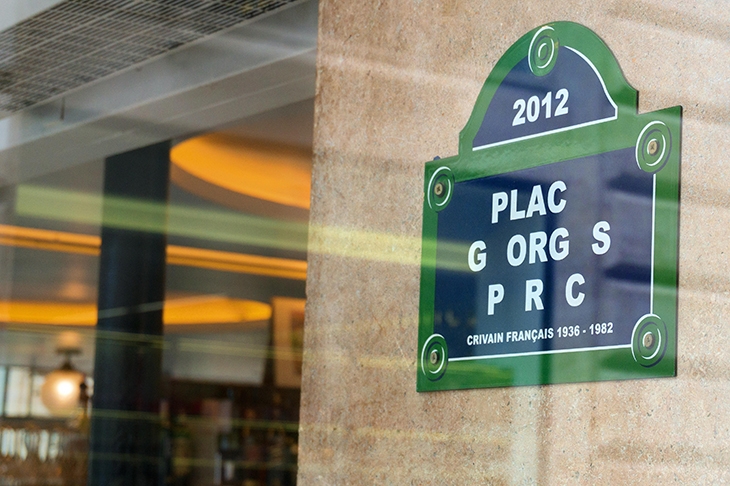Have you heard of the Oulipo? The long-running Parisian workshop for experimental writing? Even if you haven’t, you might have heard of some of its members: Georges Perec, Italo Calvino, Marcel Duchamp. The group’s stock-in-trade (so-called ‘constrained writing’) is best illustrated by their most notorious production: Perec’s 1969 novel La Disparition which manages to avoid using the letter ‘e’ (and which was miraculously translated into English as A Void).
Founded in 1960, the Oulipo spent its first decade in self-imposed semi-secrecy. While its academic sibling, Structuralism, came to dominate literature departments both at home and abroad, the Oulipo watched discreetly in disdain: why are the structuralists so dry, so up themselves? Where’s the fun in that? In the mid-1960s, when the group’s original joie de vivre began to flag, a decision was taken to revivify things by accepting new members, and these second-wavers — many of whom, such as Perec, Jacques Roubaud and Harry Mathews, were up-and-coming writers with something of a public profile already — made secrecy more or less untenable.
The group has continued, periodically, to take on new blood, and are more active and less secret than they’ve ever been.

Get Britain's best politics newsletters
Register to get The Spectator's insight and opinion straight to your inbox. You can then read two free articles each week.
Already a subscriber? Log in







Comments
Join the debate for just $5 for 3 months
Be part of the conversation with other Spectator readers by getting your first three months for $5.
UNLOCK ACCESS Just $5 for 3 monthsAlready a subscriber? Log in